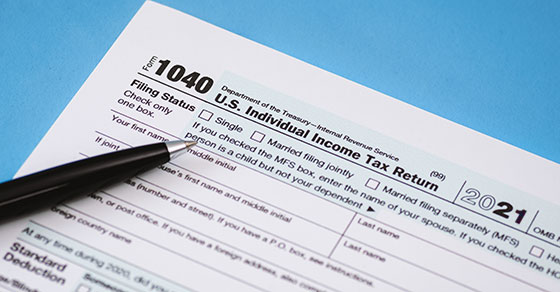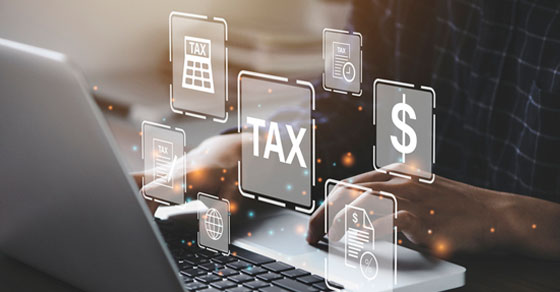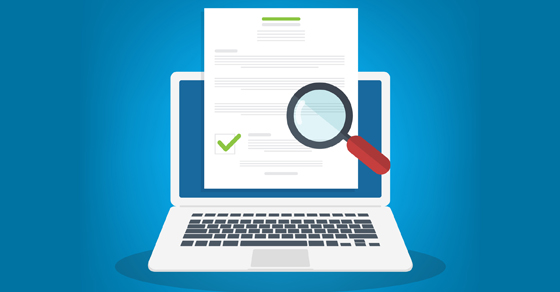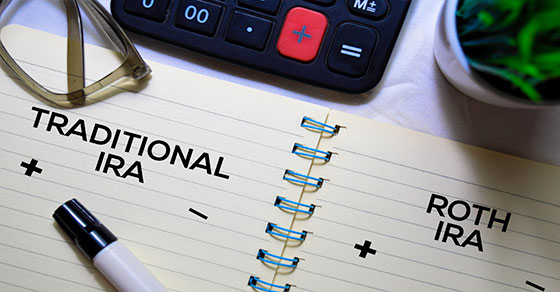Weekly Tax Brief
Are you ready for the 2021 gift tax return deadline?
- Details
- Published: 24 February 2022 24 February 2022

If you made large gifts to your children, grandchildren or other heirs last year, it’s important to determine whether you’re required to file a 2021 gift tax return. And in some cases, even if it’s not required to file one, it may be beneficial to do so anyway.
Who must file?
The annual gift tax exclusion has increased in 2022 to $16,000 but was $15,000 for 2021. Generally, you must file a gift tax return for 2021 if, during the tax year, you made gifts:
- That exceeded the $15,000-per-recipient gift tax annual exclusion for 2021 (other than to your U.S. citizen spouse),
- That you wish to split with your spouse to take advantage of your combined $30,000 annual exclusion for 2021,
- That exceeded the $159,000 annual exclusion in 2021 for gifts to a noncitizen spouse,
- To a Section 529 college savings plan and wish to accelerate up to five years’ worth of annual exclusions ($75,000) into 2021,
- Of future interests — such as remainder interests in a trust — regardless of the amount, or
- Of jointly held or community property.
Keep in mind that you’ll owe gift tax only to the extent that an exclusion doesn’t apply and you’ve used up your lifetime gift and estate tax exemption ($11.7 million for 2021). As you can see, some transfers require a return even if you don’t owe tax.
Why you might want to file
No gift tax return is required if your gifts for 2021 consisted solely of gifts that are tax-free because they qualify as:
- Annual exclusion gifts,
- Present interest gifts to a U.S. citizen spouse,
- Educational or medical expenses paid directly to a school or health care provider, or
- Political or charitable contributions.
But if you transferred hard-to-value property, such as artwork or interests in a family-owned business, you should consider filing a gift tax return even if you’re not required to. Adequate disclosure of the transfer in a return triggers the statute of limitations, generally preventing the IRS from challenging your valuation more than three years after you file.
The deadline is April 18
The gift tax return deadline is the same as the income tax filing deadline. For 2021 returns, it’s April 18, 2022 — or October 17, 2022, if you file for an extension. But keep in mind that, if you owe gift tax, the payment deadline is April 18, regardless of whether you file for an extension. If you’re not sure whether you must (or should) file a 2021 gift tax return, contact us.
© 2022
Can you deduct the costs of a spouse on a business trip?
- Details
- Published: 22 February 2022 22 February 2022

If you own your own company and travel for business, you may wonder whether you can deduct the costs of having your spouse accompany you on trips.
The rules for deducting a spouse’s travel costs are very restrictive. First of all, to qualify, your spouse must be your employee. This means you can’t deduct the travel costs of a spouse, even if his or her presence has a bona fide business purpose, unless the spouse is a bona fide employee of your business. This requirement prevents tax deductibility in most cases.
A spouse-employee
If your spouse is your employee, then you can deduct his or her travel costs if his or her presence on the trip serves a bona fide business purpose. Merely having your spouse perform some incidental business service, such as typing up notes from a meeting, isn’t enough to establish a business purpose. In general, it isn’t sufficient for his or her presence to be “helpful” to your business pursuits — it must be necessary.
In most cases, a spouse’s participation in social functions, for example as a host or hostess, isn’t enough to establish a business purpose. That is, if his or her purpose is to establish general goodwill for customers or associates, this is usually insufficient. Further, if there’s a vacation element to the trip (for example, if your spouse spends time sightseeing), it will be more difficult to establish a business purpose for his or her presence on the trip. On the other hand, a bona fide business purpose exists if your spouse’s presence is necessary to care for a serious medical condition that you have.
If your spouse’s travel satisfies these tests, the normal deductions for business travel away from home can be claimed. These include the costs of transportation, meals, lodging, and incidental costs such as dry cleaning, phone calls, etc.
A non-employee spouse
Even if your spouse’s travel doesn’t satisfy the requirements, however, you may still be able to deduct a substantial portion of the trip’s costs. This is because the rules don’t require you to allocate 50% of your travel costs to your spouse. You need only allocate any additional costs you incur for him or her. For example, in many hotels the cost of a single room isn’t that much lower than the cost of a double. If a single would cost you $150 a night and a double would cost you and your spouse $200, the disallowed portion of the cost allocable to your spouse would only be $50. In other words, you can write off the cost of what you would have paid traveling alone. To prove your deduction, ask the hotel for a room rate schedule showing single rates for the days you’re staying.
And if you drive your own car or rent one, the whole cost will be fully deductible even if your spouse is along. Of course, if public transportation is used, and for meals, any separate costs incurred by your spouse wouldn’t be deductible.
Contact us if you have questions about this or other tax-related topics.
© 2022
Married couples filing separate tax returns: Why would they do it?
- Details
- Published: 17 February 2022 17 February 2022

If you’re married, you may wonder whether you should file joint or separate tax returns. The answer depends on your individual tax situation.
In general, it depends on which filing status results in the lowest tax. But keep in mind that, if you and your spouse file a joint return, each of you is “jointly and severally” liable for the tax on your combined income. And you’re both equally liable for any additional tax the IRS assesses, plus interest and most penalties. That means that the IRS can come after either of you to collect the full amount.
Although there are “innocent spouse” provisions in the law that may offer relief, they have limitations. Therefore, even if a joint return results in less tax, you may want to file separately if you want to only be responsible for your own tax.
In most cases, filing jointly offers the most tax savings, especially when the spouses have different income levels. Combining two incomes can bring some of it out of a higher tax bracket. For example, if one spouse has $75,000 of taxable income and the other has just $15,000, filing jointly instead of separately can save $2,499 on their 2021 taxes, when they file this year.
Filing separately doesn’t mean you go back to using the “single” rates that applied before you were married. Instead, each spouse must use “married filing separately” rates. They’re less favorable than the single rates.
However, there are cases when people save tax by filing separately. For example:
One spouse has significant medical expenses. Medical expenses are deductible only to the extent they exceed 7.5% of adjusted gross income (AGI). If a medical expense deduction is claimed on a spouse’s separate return, that spouse’s lower separate AGI, as compared to the higher joint AGI, can result in larger total deductions.
Some tax breaks are only available on a joint return. The child and dependent care credit, adoption expense credit, American Opportunity tax credit and Lifetime Learning credit are only available to married couples on joint returns. And you can’t take the credit for the elderly or the disabled if you file separately unless you and your spouse lived apart for the entire year. You also may not be able to deduct IRA contributions if you or your spouse were covered by an employer retirement plan and you file separate returns. And you can’t exclude adoption assistance payments or interest income from series EE or Series I savings bonds used for higher education expenses.
Social Security benefits may be taxed more. Benefits are tax-free if your “provisional income” (AGI with certain modifications plus half of your Social Security benefits) doesn’t exceed a “base amount.” The base amount is $32,000 on a joint return, but zero on separate returns (or $25,000 if the spouses didn’t live together for the whole year).
Circumstances matter
The decision you make on filing your federal tax return may affect your state or local income tax bill, so the total tax impact should be compared. There’s often no simple answer to whether a couple should file separate returns. A number of factors must be examined. We can look at your tax bill jointly and separately. Contact us to prepare your return or if you have any questions.
© 2022
Making withdrawals from your closely held corporation that aren’t taxed as dividends
- Details
- Published: 15 February 2022 15 February 2022

Do you want to withdraw cash from your closely held corporation at a minimum tax cost? The simplest way is to distribute cash as a dividend. However, a dividend distribution isn’t tax-efficient since it’s taxable to you to the extent of your corporation’s “earnings and profits.” It’s also not deductible by the corporation.
Five alternatives
Fortunately, there are several alternative methods that may allow you to withdraw cash from a corporation while avoiding dividend treatment. Here are five areas where you may want to take action:
1. Capital repayments. To the extent that you’ve capitalized the corporation with debt, including amounts you’ve advanced to the business, the corporation can repay the debt without the repayment being treated as a dividend. Additionally, interest paid on the debt can be deducted by the corporation. This assumes that the debt has been properly documented with terms that characterize debt and that the corporation doesn’t have an excessively high debt-to-equity ratio. If not, the debt repayment may be taxed as a dividend. If you make future cash contributions to the corporation, consider structuring them as debt to facilitate later withdrawals on a tax-advantaged basis.
2. Salary. Reasonable compensation that you (or family members) receive for services rendered to the corporation is deductible by the business. However, it’s also taxable to the recipient. The same rule applies to any compensation in the form of rent that you receive from the corporation for the use of property. In both cases, the amount of compensation must be reasonable in relation to the services rendered or the value of the property provided. If it’s excessive, the excess will be nondeductible and treated as a corporate distribution.
3. Loans. You may withdraw cash from the corporation tax-free by borrowing from it. However, to avoid having the loan characterized as a corporate distribution, it should be properly documented in a loan agreement or a note and be made on terms that are comparable to those on which an unrelated third party would lend money to you. This should include a provision for interest and principal. All interest and principal payments should be made when required under the loan terms. Also, consider the effect of the corporation’s receipt of interest income.
4. Fringe benefits. Consider obtaining the equivalent of a cash withdrawal in fringe benefits that are deductible by the corporation and not taxable to you. Examples are life insurance, certain medical benefits, disability insurance and dependent care. Most of these benefits are tax-free only if provided on a nondiscriminatory basis to other employees of the corporation. You can also establish a salary reduction plan that allows you (and other employees) to take a portion of your compensation as nontaxable benefits, rather than as taxable compensation.
5. Property sales. Another way to withdraw cash from the corporation is to sell property to it. However, certain sales should be avoided. For example, you shouldn’t sell property to a more than 50% owned corporation at a loss, since the loss will be disallowed. And you shouldn’t sell depreciable property to a more than 50% owned corporation at a gain, since the gain will be treated as ordinary income, rather than capital gain. A sale should be on terms that are comparable to those on which an unrelated third party would purchase the property. You may need to obtain an independent appraisal to establish the property’s value.
Keep taxes low
If you’re interested in discussing any of these approaches, contact us. We’ll help you get the most out of your corporation at the minimum tax cost.
© 2022
Did you give to charity in 2021? Make sure you have substantiation
- Details
- Published: 10 February 2022 10 February 2022

If you donated to charity last year, letters from the charities may have appeared in your mailbox recently acknowledging the donations. But what happens if you haven’t received such a letter — can you still claim a deduction for the gift on your 2021 income tax return? It depends.
The requirements
To prove a charitable donation for which you claim a tax deduction, you need to comply with IRS substantiation requirements. For a donation of $250 or more, this includes obtaining a contemporaneous written acknowledgment from the charity stating the amount of the donation, whether you received any goods or services in consideration for the donation and the value of any such goods or services.
“Contemporaneous” means the earlier of:
- The date you file your tax return, or
- The extended due date of your return.
Therefore, if you made a donation in 2021 but haven’t yet received substantiation from the charity, it’s not too late — as long as you haven’t filed your 2021 return. Contact the charity now and request a written acknowledgment.
Keep in mind that, if you made a cash gift of under $250 with a check or credit card, generally a canceled check, bank statement or credit card statement is sufficient. However, if you received something in return for the donation, you generally must reduce your deduction by its value — and the charity is required to provide you a written acknowledgment as described earlier.
Temporary deduction for nonitemizers is gone
In general, taxpayers who don’t itemize their deductions (and instead claim the standard deduction) can’t claim a charitable deduction. Under the COVID-19 relief laws, individuals who don’t itemize deductions can claim a federal income tax write-off for up to $300 of cash contributions to IRS-approved charities for the 2021 tax year. This deduction is $600 for married joint filers for cash contributions made in 2021. Unfortunately, the deduction for nonitemizers isn’t available for 2022 unless Congress acts to extend it.
Additional requirements
Additional substantiation requirements apply to some types of donations. For example, if you donate property valued at more than $500, a completed Form 8283 (Noncash Charitable Contributions) must be attached to your return or the deduction isn’t allowed.
And for donated property with a value of more than $5,000, you’re generally required to obtain a qualified appraisal and to attach an appraisal summary to your tax return.
We can help you determine whether you have sufficient substantiation for the donations you hope to deduct on your 2021 income tax return — and guide you on the substantiation you’ll need for gifts you’re planning this year to ensure you can enjoy the desired deductions on your 2022 return.
© 2022
Did you give to charity in 2021? Make sure you have substantiation
- Details
- Published: 08 February 2022 08 February 2022

If you donated to charity last year, letters from the charities may have appeared in your mailbox recently acknowledging the donations. But what happens if you haven’t received such a letter — can you still claim a deduction for the gift on your 2021 income tax return? It depends.
The requirements
To prove a charitable donation for which you claim a tax deduction, you need to comply with IRS substantiation requirements. For a donation of $250 or more, this includes obtaining a contemporaneous written acknowledgment from the charity stating the amount of the donation, whether you received any goods or services in consideration for the donation and the value of any such goods or services.
“Contemporaneous” means the earlier of:
- The date you file your tax return, or
- The extended due date of your return.
Therefore, if you made a donation in 2021 but haven’t yet received substantiation from the charity, it’s not too late — as long as you haven’t filed your 2021 return. Contact the charity now and request a written acknowledgment.
Keep in mind that, if you made a cash gift of under $250 with a check or credit card, generally a canceled check, bank statement or credit card statement is sufficient. However, if you received something in return for the donation, you generally must reduce your deduction by its value — and the charity is required to provide you a written acknowledgment as described earlier.
Temporary deduction for nonitemizers is gone
In general, taxpayers who don’t itemize their deductions (and instead claim the standard deduction) can’t claim a charitable deduction. Under the COVID-19 relief laws, individuals who don’t itemize deductions can claim a federal income tax write-off for up to $300 of cash contributions to IRS-approved charities for the 2021 tax year. This deduction is $600 for married joint filers for cash contributions made in 2021. Unfortunately, the deduction for nonitemizers isn’t available for 2022 unless Congress acts to extend it.
Additional requirements
Additional substantiation requirements apply to some types of donations. For example, if you donate property valued at more than $500, a completed Form 8283 (Noncash Charitable Contributions) must be attached to your return or the deduction isn’t allowed.
And for donated property with a value of more than $5,000, you’re generally required to obtain a qualified appraisal and to attach an appraisal summary to your tax return.
We can help you determine whether you have sufficient substantiation for the donations you hope to deduct on your 2021 income tax return — and guide you on the substantiation you’ll need for gifts you’re planning this year to ensure you can enjoy the desired deductions on your 2022 return.
© 2022
The Ins and Outs of IRAs
- Details
- Published: 04 February 2022 04 February 2022

Traditional IRAs and Roth IRAs have been around for decades and the rules surrounding them have changed many times. What hasn’t changed is that they can help you save for retirement on a tax-favored basis. Here’s an overview.
Traditional IRAs
You can make an annual deductible contribution to a traditional IRA if:
- You (and your spouse) aren’t active participants in employer-sponsored retirement plans, or
- You (or your spouse) are active participants in an employer plan, and your modified adjusted gross income (MAGI) doesn’t exceed certain levels that vary annually by filing status.
For example, in 2022, if you’re a joint return filer covered by an employer plan, your deductible IRA contribution phases out over $109,000 to $129,000 of MAGI ($68,000 to $78,000 for singles).
Deductible IRA contributions reduce your current tax bill, and earnings are tax-deferred. However, withdrawals are taxed in full (and subject to a 10% penalty if taken before age 59½, unless one of several exceptions apply). You must begin making minimum withdrawals by April 1 of the year following the year you turn age 72.
You can make an annual nondeductible IRA contribution without regard to employer plan coverage and your MAGI. The earnings in a nondeductible IRA are tax-deferred but taxed when distributed (and subject to a 10% penalty if taken early, unless an exception applies).
You must begin making minimum withdrawals by April 1 of the year after the year you reach age 72. Nondeductible contributions aren’t taxed when withdrawn. If you’ve made deductible and nondeductible IRA contributions, a portion of each distribution is treated as coming from nontaxable IRA contributions (and the rest is taxed).
Contribution amounts
The maximum annual IRA contribution (deductible or nondeductible, or a combination) is $6,000 for 2022 and 2021 ($7,000 if age 50 or over). Additionally, your contribution can’t exceed the amount of your compensation includible in income for that year. There’s no age limit for making contributions, as long as you have compensation income (before 2021, traditional IRA contributions weren’t allowed after age 70½).
Roth IRAs
You can make an annual contribution to a Roth IRA if your income doesn’t exceed certain levels based on filing status. For example, in 2022, if you’re a joint return filer, the maximum annual Roth IRA contribution phases out between $204,000 and $214,000 of MAGI ($129,000 to $144,000 for singles). Annual Roth contributions can be made up to the amount allowed as a contribution to a traditional IRA, reduced by the amount you contribute for the year to non-Roth IRAs, but not reduced by contributions to a SEP or SIMPLE plan.
Roth IRA contributions aren’t deductible. However, earnings are tax-deferred and (unlike a traditional IRA) withdrawals are tax-free if paid out:
- After a five-year period that begins with the first year for which you made a contribution to a Roth, and
- Once you reach age 59½, or upon death or disability, or for first-time home-buyer expenses of you, your spouse, child, grandchild, or ancestor (up to $10,000 lifetime).
You can make Roth IRA contributions even after reaching age 72 (if you have compensation income), and you don’t have to take required minimum distributions from a Roth. You can “roll over” (or convert) a traditional IRA to a Roth regardless of your income. The amount taken out of the traditional IRA and rolled into the Roth is treated for tax purposes as a regular withdrawal (but not subject to the 10% early withdrawal penalty).
Contact us for more information about how you may be able to benefit from IRAs.
© 2022
Keeping meticulous records is the key to tax deductions and painless IRS audits
- Details
- Published: 01 February 2022 01 February 2022

If you operate a business, or you’re starting a new one, you know you need to keep records of your income and expenses. Specifically, you should carefully record your expenses in order to claim all of the tax deductions to which you’re entitled. And you want to make sure you can defend the amounts reported on your tax returns in case you’re ever audited by the IRS.
Be aware that there’s no one way to keep business records. But there are strict rules when it comes to keeping records and proving expenses are legitimate for tax purposes. Certain types of expenses, such as automobile, travel, meals and home office costs, require special attention because they’re subject to special recordkeeping requirements or limitations.
Here are two recent court cases to illustrate some of the issues.
Case 1: To claim deductions, an activity must be engaged in for profit
A business expense can be deducted if a taxpayer can establish that the primary objective of the activity is making a profit. The expense must also be substantiated and be an ordinary and necessary business expense. In one case, a taxpayer claimed deductions that created a loss, which she used to shelter other income from tax.
She engaged in various activities including acting in the entertainment industry and selling jewelry. The IRS found her activities weren’t engaged in for profit and it disallowed her deductions.
The taxpayer took her case to the U.S. Tax Court, where she found some success. The court found that she was engaged in the business of acting during the years in issue. However, she didn’t prove that all claimed expenses were ordinary and necessary business expenses. The court did allow deductions for expenses including headshots, casting agency fees, lessons to enhance the taxpayer’s acting skills and part of the compensation for a personal assistant. But the court disallowed other deductions because it found insufficient evidence “to firmly establish a connection” between the expenses and the business.
In addition, the court found that the taxpayer didn’t prove that she engaged in her jewelry sales activity for profit. She didn’t operate it in a businesslike manner, spend sufficient time on it or seek out expertise in the jewelry industry. Therefore, all deductions related to that activity were disallowed. (TC Memo 2021-107)
Case 2: A business must substantiate claimed deductions with records
A taxpayer worked as a contract emergency room doctor at a medical center. He also started a business to provide emergency room physicians overseas. On Schedule C of his tax return, he deducted expenses related to his home office, travel, driving, continuing education, cost of goods sold and interest. The IRS disallowed most of the deductions.
As evidence in Tax Court, the doctor showed charts listing his expenses but didn’t provide receipts or other substantiation showing the expenses were actually paid. He also failed to account for the portion of expenses attributable to personal activity.
The court disallowed the deductions stating that his charts weren’t enough and didn’t substantiate that the expenses were ordinary and necessary in his business. It noted that “even an otherwise deductible expense may be denied without sufficient substantiation.” The doctor also didn’t qualify to take home office deductions because he didn’t prove it was his principal place of business. (TC Memo 2022-1)
We can help
Contact us if you need assistance retaining adequate business records. Taking a meticulous, proactive approach can protect your deductions and help make an audit much less difficult.
© 2022
Smooth sailing: Tips to speed processing and avoid hassles this tax season
- Details
- Published: 27 January 2022 27 January 2022

The IRS began accepting 2021 individual tax returns on January 24. If you haven’t prepared yet for tax season, here are three quick tips to help speed processing and avoid hassles.
Tip 1. Contact us soon for an appointment to prepare your tax return.
Tip 2. Gather all documents needed to prepare an accurate return. This includes W-2 and 1099 forms. In addition, you may have received statements or letters in connection with Economic Impact Payments (EIPs) or advance Child Tax Credit (CTC) payments.
Letter 6419, 2021 Total Advance Child Tax Credit Payments, tells taxpayers who received CTC payments how much they received. Since the advance payments represented about one-half of the total credit, taxpayers who received CTC payments need to file a return to collect the rest of the credit. Letter 6475, Your Third Economic Impact Payment, tells taxpayers who received an EIP in 2021 the amount of that payment. Taxpayers need to know the amount to determine if they can claim an additional amount on their tax returns.
Taxpayers who received an EIP or CTC payments must include that information on their returns. Failure to include this information, according to the IRS, means a return is incomplete and will require additional processing, which may delay any refund owed to the taxpayer.
Tip 3. Check certain information on your prepared return. Each Social Security number on your tax return should appear exactly as printed on the Social Security card(s). Likewise, make sure that names aren’t misspelled. If you’re receiving your refund by direct deposit, check the bank account number.
Failure to file or pay on time
What if you don’t file on time or can’t pay your tax bill? Separate penalties apply for failing to pay and failing to file. The penalties imposed are a percentage of the taxes you didn’t pay or didn’t pay on time. If you obtain an extension for the filing due date (until October 17), you aren’t filing late unless you miss the extended due date. However, a filing extension doesn’t apply to your responsibility for payment. If you obtain an extension, you’re required to pay an estimate of any owed taxes by the regular deadline to avoid possible penalties.
The penalties for failing to file and failing to pay can be quite severe. (They may be excused by the IRS if your lateness is due to “reasonable cause,” such as illness or a death in the family.) Contact us for questions or concerns about how to proceed in your situation.
© 2022
Entrepreneurs and taxes: How expenses are claimed on tax returns
- Details
- Published: 25 January 2022 25 January 2022

While some businesses have closed since the start of the COVID-19 crisis, many new ventures have launched. Entrepreneurs have cited a number of reasons why they decided to start a business in the midst of a pandemic. For example, they had more time, wanted to take advantage of new opportunities or they needed money due to being laid off. Whatever the reason, if you’ve recently started a new business, or you’re contemplating starting one, be aware of the tax implications.
As you know, before you even open the doors in a start-up business, you generally have to spend a lot of money. You may have to train workers and pay for rent, utilities, marketing and more.
Entrepreneurs are often unaware that many expenses incurred by start-ups can’t be deducted right away. Keep in mind that the way you handle some of your initial expenses can make a large difference in your tax bill.
Essential tax points
When starting or planning a new enterprise, keep these factors in mind:
- Start-up costs include those incurred or paid while creating an active trade or business — or investigating the creation or acquisition of one.
- Under the federal tax code, taxpayers can elect to deduct up to $5,000 of business start-up and $5,000 of organizational costs in the year the venture begins. Of course, $5,000 doesn’t go far these days! And the $5,000 deduction is reduced dollar-for-dollar by the amount by which your total start-up or organizational costs exceed $50,000. Any remaining costs must be amortized over 180 months on a straight-line basis.
- No deductions or amortization write-offs are allowed until the year when “active conduct” of your new business commences. That usually means the year when the enterprise has all the pieces in place to begin earning revenue. To determine if a taxpayer meets this test, the IRS and courts generally ask questions such as: Did the taxpayer undertake the activity intending to earn a profit? Was the taxpayer regularly and actively involved? Has the activity actually begun?
Types of expenses
Start-up expenses generally include all expenses that are incurred to:
- Investigate the creation or acquisition of a business,
- Create a business, or
- Engage in a for-profit activity in anticipation of that activity becoming an active business.
To be eligible for the election, an expense also must be one that would be deductible if it were incurred after a business began. One example would be the money you spend analyzing potential markets for a new product or service.
To qualify as an “organization expense,” the outlay must be related to the creation of a corporation or partnership. Some examples of organization expenses are legal and accounting fees for services related to organizing the new business and filing fees paid to the state of incorporation.
An important decision
Time may be of the essence if you have start-up expenses that you’d like to deduct for this year. You need to decide whether to take the election described above. Recordkeeping is important. Contact us about your business start-up plans. We can help with the tax and other aspects of your new venture.
© 2022





